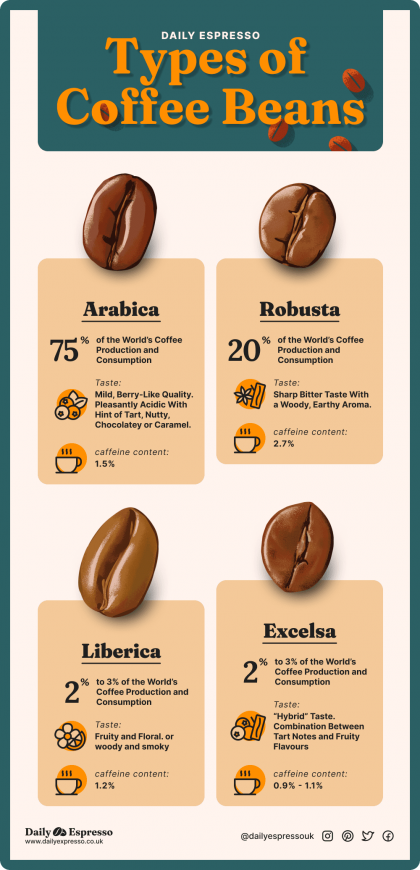Decaf coffee has long been enveloped by a fog of myths and misconceptions. Numerous caffeine enthusiasts shy away from trying decaffeinated choices, fearing that they will trade off flavor for the sake of reduced caffeine amount. However, the world of decaffeinated coffee is much more nuanced than that. From artisan decaf coffee grains to innovative preparation techniques, there is a whole realm of bold, deep flavors waiting to be discovered.
As we begin on this flavorful journey, we will reveal the realities behind decaffeinated coffee. What makes a good decaffeinated coffee? How do you choose the best decaf coffee beans for your taste buds? We will explore the science of decaffeination, highlight the best reviewed decaf coffees on the market, and provide suggestions on brewing that ideal cup of decaffeinated coffee. If you're a long-time fan of good decaf coffee or just interested about what the hype is all about, this article guarantees to uncover the delicious possibilities tucked away in each cup of decaffeinated coffee.
Understanding Decaf Beverage
Decaffeinated beverage, short for decaf beverage, is a well-liked choice for consumers who like the robust profiles of coffee but want to minimize their caffeine consumption. The caffeine removal process typically removes around 97 percent of the caffeine from the bean seeds, allowing for a beverage that can be enjoyed at any time of day free from the anxiety linked to traditional coffee. Decaf coffee beans undergo different processes to remove caffeine, including water extraction, chemical processes, and CO2 extraction, each impacting the profile and quality of the final brew.
When looking for the finest decaffeinated coffee, it's essential to think about the source of the beans and the decaffeination process employed. High-quality decaffeinated coffee seeds often retain the robust profiles of their regular variants, offering a pleasurable encounter for coffee lovers. Good decaffeinated coffee is accessible in multiple forms, such as whole beans, grinds, and special blends, allowing consumers to find their favorite style and brewing method. A fine decaf coffee should still have a rich taste, full aroma, and a delightful mouthfeel.
For those exploring decaf options, the market offers a broad range of options. From the best rated decaf coffee to the most flavorful decaffeinated coffee, there is choices for everyone. Whether you prefer a good decaffeinated coffee in the morning or a robust decaf espresso coffee in the late hours, knowing what makes a great decaffeinated coffee can enhance your complete coffee adventure. Choosing the ideal decaf coffee can enhance your routine, enabling you to enjoy the complexities of coffee free from the caffeine effect kick.
Myths and Facts About Decaf
One widespread fallacy about decaf coffee is that it lacks flavor compared to regular coffee. A lot of people believe that the decaffeination process takes away the beans of their fundamental taste attributes, resulting in a tasteless beverage. In truth, high-quality decaf coffee can be robust and delicious, with plenty of flavor profiles related to the location of the beans. Quality decaf coffee, sourced and roasted correctly, can provide a drinking experience that competes with standard coffee.
Another fallacy is that decaf coffee has zero caffeine at all. While it is correct that decaffeinated coffee has considerably less caffeine, it does not mean it is entirely caffeine-free. Most decaf beans still keep a minimal amount of caffeine, typically around two to five milligrams per cup. For those sensitive caffeine but still wishing to appreciate a cup of quality decaffeinated coffee, it is crucial to be mindful of this residual caffeine amount.
Numerous consumers also assume that all decaf coffee is produced equal, leading them to underestimate the differences in quality among multiple brands. The top decaf coffee beans are typically processed with precision to maintain their natural flavors, while some poorer decaf beans may undergo harsher decaffeination methods that can affect taste. Choosing the highest-rated decaf coffee can make all the distinction, as it ensures a more satisfying experience, highlighting the potential of decaf coffee rather than reducing it to a mere substitute.
Picking the Finest Decaf Coffee
When picking the best decaf coffee, it's important to consider the process of removing caffeine. There are numerous methods available, such as the Swiss Water Process and CO2 extraction, which preserve the beans' flavor while eliminating caffeine. The Swiss Water Process is notably popular among coffee enthusiasts for its ability to keep the natural characteristics of the coffee. Learning about these methods can help you choose a good decaffeinated coffee that aligns with your taste likings.
After that, pay close attention to the source of the coffee beans. Decaf coffee beans can originate from multiple regions, each offering unique flavors and characteristics. For example, Colombian decaf is known for its smooth flavor, while Ethiopian decaf might provide a sweeter taste. Checking out different origins can lead to discovering great decaf coffee that suits your taste buds. Searching for single-origin options can also guarantee you of the quality and flavor nuances in your cup.
At last, read reviews and feedback to find the best-rated decaf coffee. decaf coffee beans 1kg offer decaf, but not all provide the same standard. Look for those with good feedback regarding quality, aroma, and overall contentment. If searching for decaf ground coffee or decaf espresso ground coffee, choosing products with high customer ratings ensures you'll enjoy a nice decaf coffee experience that meets your standards.

